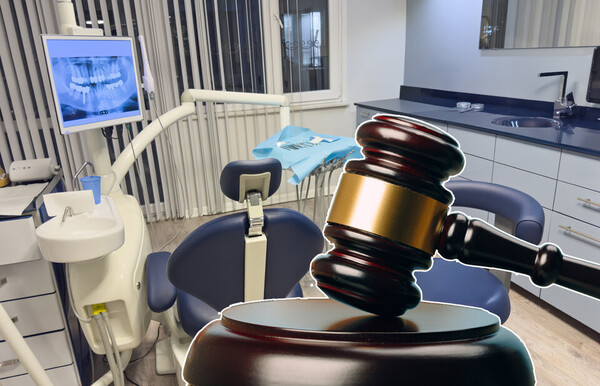A court has ruled that a dentist who self-prescribed erectile dysfunction medication and hair loss treatment is not subject to suspension of his license.
The Seoul Administrative Court ruled in favor of the dentist, identified as just Mr. A, in a lawsuit against the Minister of Health and Welfare, ordering the suspension of their license to be revoked. The ruling was handed down on July 10.
Mr. A, who operates a dental clinic in Nowon-gu in northern Seoul, purchased erectile dysfunction medication “Erecximum” oral dissolving film three times and hair loss medication “Avodart” twice from an online pharmacy operated by a pharmaceutical wholesaler in 2020. All of these medications are prescription-only drugs that can only be prescribed by a doctor.
Mr. A's “self-prescription” was uncovered during a 2020 audit of pharmaceutical safety management conducted by the Board of Audit and Inspection. The BAI discovered that dental clinics nationwide had purchased prescription-only medications unrelated to dental treatment and used them for self-prescription and other purposes, and referred the cases to the relevant health authorities for administrative sanctions.

The local public health center accused A of violating the Medical Service Act by engaging in medical practices beyond the scope of a dentist's license and referred the case to the prosecution. The Seoul Northern District Prosecutors' Office decided in August 2021 that Mr. A had violated the Medical Service Act. However, it suspended the indictment, considering that it was a first offense, there was no profit motive, and the medication was for personal use. In response, the Ministry of Health and Welfare, considering that Mr. A had received a prosecutorial discretion decision, imposed a license suspension of one month and 15 days, which was reduced by half from the standard administrative penalty, in September 2024.
However, the court reached a different conclusion. While the court acknowledged that Mr. A's act of purchasing specialized medications unrelated to dental treatment and self-administering them was “inappropriate,” it ruled that such conduct did not constitute “medical acts beyond the scope of a medical professional's license” under Article 27(1) of the Medical Service Act.
The court reasoned that self-prescription and self-administration pose minimal health risks, do not align with the intent of the Medical Service Act, which is based on third-party treatment, and that punishing medical professionals alone while exempting non-medical personnel from punishment would create a legal inconsistency.
Unqualified non-medical personnel engaging in medical acts pose a significant risk to patients' lives and health and therefore must be strictly regulated and punished,” the court said.
However, it noted that medical professionals are different.
“Medical professionals should be granted broad discretion to select the content of medical acts based on specific clinical circumstances. Since the Medical Service Act does not explicitly define the scope of practice for each medical profession, a different approach is necessary when determining whether acts outside the licensed scope should be subject to sanctions or penalties,” the court said.
It also referenced a previous Supreme Court ruling that did not consider the use of ultrasound diagnostic devices by oriental medicine practitioners to be a violation of the Medical Service Act.
The court emphasized that there have been no cases where self-treatment or self-prescription has been penalized, and that the Constitutional Court has ruled that medical professionals cannot be penalized for medical acts outside their licensed scope. In August 2024, the Constitutional Court ruled on a constitutional complaint filed by a dentist in a situation similar to this case, stating, “Since there is no recognized risk of harm to public health and hygiene, it cannot be deemed a violation of Article 27(1) of the Medical Service Act.”
Additionally, it noted that “there are no provisions penalizing self-treatment or self-prescription by non-medical professionals, so patients' self-treatment or self-prescription falls within the realm of their right to self-determination.” It further criticized that penalizing medical professionals for performing acts permitted to non-medical professionals would create an inconsistent systemic contradiction, and such legal interpretation should be avoided.”
The Ministry of Health and Welfare argued that there is a need to regulate self-prescription and self-administration of prescription drugs unrelated to dental treatment. However, the court deemed this an issue requiring separate legislation.
“Unlike self-prescription or addiction related to mental illness, narcotics, marijuana, or psychotropic substances, there is little reason to assume that self-treatment or self-prescription of medications for ordinary illnesses unrelated to the qualifications or trustworthiness of medical professionals would pose a risk to public health and hygiene, even if it does not violate Article 27(1) of the Medical Service Act,” it said.
The court also noted that the actions in question were closer to a violation of the Pharmaceutical Affairs Act than the Medical Service Act, and that there was insufficient legal basis for punishment under current laws.
“It is more appropriate to approach this as a violation of the Pharmaceutical Affairs Act rather than the Medical Service Act,” it said. The court also pointed out that “since medications like erectile dysfunction and hair loss treatments, which are not subject to sanctions or penalties under the Pharmaceutical Affairs Act despite concerns about misuse or abuse, it would be inconsistent and contradictory to impose sanctions or penalties on medical professionals for such actions.”
Accordingly, the court ruled to grant Mr. A's request and revoke the one-month and 15-day suspension of his dental license.

